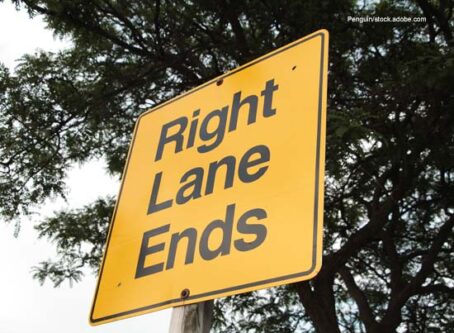Federal judge guts lawsuits challenging NYC’s congestion pricing
Several lawsuits challenging New York City’s congestion pricing program took a major blow after a federal judge ruled that an associated environmental review met all requirements.
Judge Lewis J. Liman of the federal court in the Southern District of New York threw out claims in three lawsuits arguing New York City’s congestion pricing program violated the National Environmental Policy Act (NEPA). With NEPA claims being central to the lawsuits, this ruling severely weakens court challenges.
At the heart of the trio of lawsuits filed by the United Federation of Teachers, residents of a Manhattan neighborhood and a grassroots coalition called New Yorkers Against Congestion Pricing Tax is the environmental review required under NEPA. Plaintiffs argue that the Federal Highway Administration did not complete a thorough review of the impacts of the congestion pricing plan.
Per NEPA, New York City’s congestion pricing plan required an environmental assessment. That assessment resulted in FHWA issuing a “finding of no significant impact.” The lawsuits seek an environmental impact statement, which is more detailed and rigorous than an environmental assessment.
“Thousands of teachers and other UFT members, along with many other workers, live in places with little or no access to mass transit,” United Federation of Teachers President Michael Mulgrew said in a statement. “They are facing dramatically rising commuting costs, and all for a traffic reduction plan whose potential effects on air quality and other issues were never seriously examined.”
Judge Liman disagreed. In a 113-page opinion, Liman rejected any idea that the environmental review process was flawed or incomplete.
“According to plaintiffs, the NEPA review process here – which spanned four years and yielded an administrative record of more than 45,000 pages – did not amount to a ‘hard look’ at the environmental implications of congestion pricing,” the opinion states. “In light of defendants’ meticulous analysis, the court cannot agree.”
Although the ruling dismantles the central claim in the three lawsuits, it does not completely dismiss the lawsuits. In addition to NEPA claims, the lawsuits also claim that New York City’s congestion pricing program violates the Commerce Clause and the Constitution’s “right to travel” clause.
“The court still has a number of our claims before it, and the litigation continues,” a United Federation of Teachers spokesperson said.
Additionally, Judge Liman’s ruling affects just three of more than half a dozen lawsuits challenging the congestion pricing plan. Of those lawsuits, the most significant is the one filed by the state of New Jersey in a New Jersey federal court. New Jersey’s lawsuit also focuses on NEPA. In a court filing after Liman’s opinion, an attorney representing New Jersey, Randy Mastro, explained to the New Jersey court that the state’s lawsuit is similar but also different.
“While the court denied the specific NEPA challenges raised by Chan and the other plaintiffs, the court did not find that the defendants complied with NEPA in issuing the final (environmental assessment) and (finding of no significant impact) for all challenges, including those raised by New Jersey,” Mastro states in the letter to the court. “While some of the legal doctrines may overlap, New Jersey has distinct arguments about the effects of the congestion pricing scheme on New Jersey, its environment and its environmental justice communities, and the lack of mitigation to mitigate those adverse effects.”
Meanwhile, the Trucking Association of New York’s congestion pricing lawsuit has nothing to do with NEPA.
Rather, the association’s lawsuit focuses on the pricing structure. Specifically, it claims the congestion pricing violates the Commerce Clause and the right to travel because it imposes a financial burden on truckers, which is not a fair approximation of their use of the Central Business District.
Judge Liman’s ruling comes just a few weeks after Gov. Kathy Hochul announced that congestion pricing would be put on pause “indefinitely.” Hochul’s unexpected announcement came just a few weeks before congestion pricing was scheduled to begin on Sunday, June 30.
Hochul’s decision to halt congestion pricing threw a wrench in lawsuits’ request for injunctive relief. But considering the decision appears to be temporary, plaintiffs are moving forward with their lawsuits that seek to undo the program completely. LL









